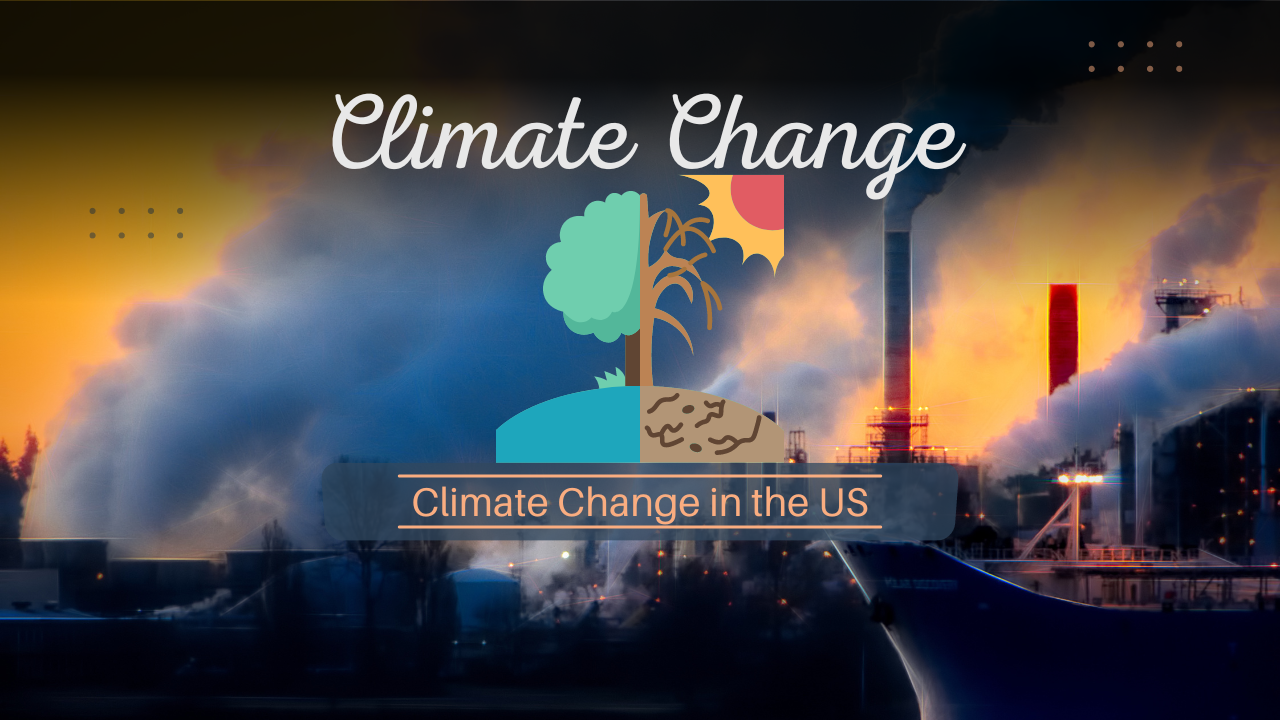Unveiling the Climate Change in the US: Exploring Impacts, Policies, and Public Engagement
Introduction
The global climate crisis demands urgent attention and collective action. While the effects of climate change are felt worldwide, it is crucial to delve into its specific implications within the United States. In this article, we will embark on a journey to unravel the current state of climate change in the US, analyze its far-reaching effects on the environment and economy, examine existing policies and laws, explore the role of science and technology, assess public awareness and engagement, and shed light on recent developments in the news.
I. Climate Change in the US: A Reality Check
Within the United States, the reality of climate change is becoming increasingly evident. Alarming temperature increases, shifting precipitation patterns, and the rise in extreme weather events are stark reminders of the urgent need for action. Recent data paints a vivid picture of rising average temperatures, with profound consequences that extend beyond mere degrees.
II. Impacts of Climate Change on the US
Given its diverse geography and ecosystems, the US is exceptionally vulnerable to the multifaceted impacts of climate change. Coastal areas face the looming threat of rising sea levels, while the scorching wrath of wildfires ravages forests and communities in the western regions. Extreme weather events, such as hurricanes and severe storms, pose risks to critical infrastructure and human lives. Additionally, ecosystem disruptions significantly affect biodiversity and wildlife habitats, amplifying the consequences for both the environment and the economy.
III. US Climate Change Policies and Laws
Recognizing the gravity of the situation, the US has implemented policies and laws aimed at mitigating the impact of climate change and fostering a transition to a sustainable future. Emphasizing the reduction of greenhouse gas emissions and the promotion of renewable energy sources, these initiatives serve as a foundation for change. However, ongoing debates surround the effectiveness of these measures, signaling the need for more comprehensive and ambitious policies to tackle the scale of the challenge.
IV. Science and Technology: Catalysts for Change
In the quest to combat climate change, science emerges as a crucial cornerstone. Through rigorous research and comprehensive data analysis, scientists offer invaluable insights into the causes and consequences of climate change, enabling informed policy decisions. Meanwhile, technology plays a pivotal role in both mitigating and adapting to climate change. Innovations in renewable energy, carbon capture, and sustainable agriculture hold immense promise in addressing the impacts of climate change.
V. Nurturing Public Awareness and Engagement
Public awareness and engagement are vital catalysts for climate action. Recent years have witnessed a significant rise in public concern, with individuals and communities passionately advocating for change. Public opinion polls and surveys underscore the growing recognition of the urgent need to address climate change. Grassroots movements and climate activism have been instrumental in mobilizing public support and exerting pressure on policymakers, driving the momentum for meaningful action.
VI. Climate Change in the Headlines
Media plays a pivotal role in amplifying awareness about climate change and its repercussions in the US. News articles and reports serve as a conduit for the latest scientific discoveries, policy developments, and climate-related events. Staying informed through climate change news empowers individuals to comprehend the urgency of the issue and empowers them to take impactful action in their own lives.
Conclusion
The climate crisis poses immense challenges to the United States and the global community. By unraveling the current state of climate change in the US, examining its effects, policies, and recent developments, we gain critical insights into forging effective solutions. By prioritizing scientific research, implementing robust policies, fostering public engagement, and staying well-informed, we can collectively mitigate the impact of climate change and forge a sustainable future for generations to come. Now is the time for action, as we embark on a transformative journey to combat climate change and safeguard our planet.










0 Comments